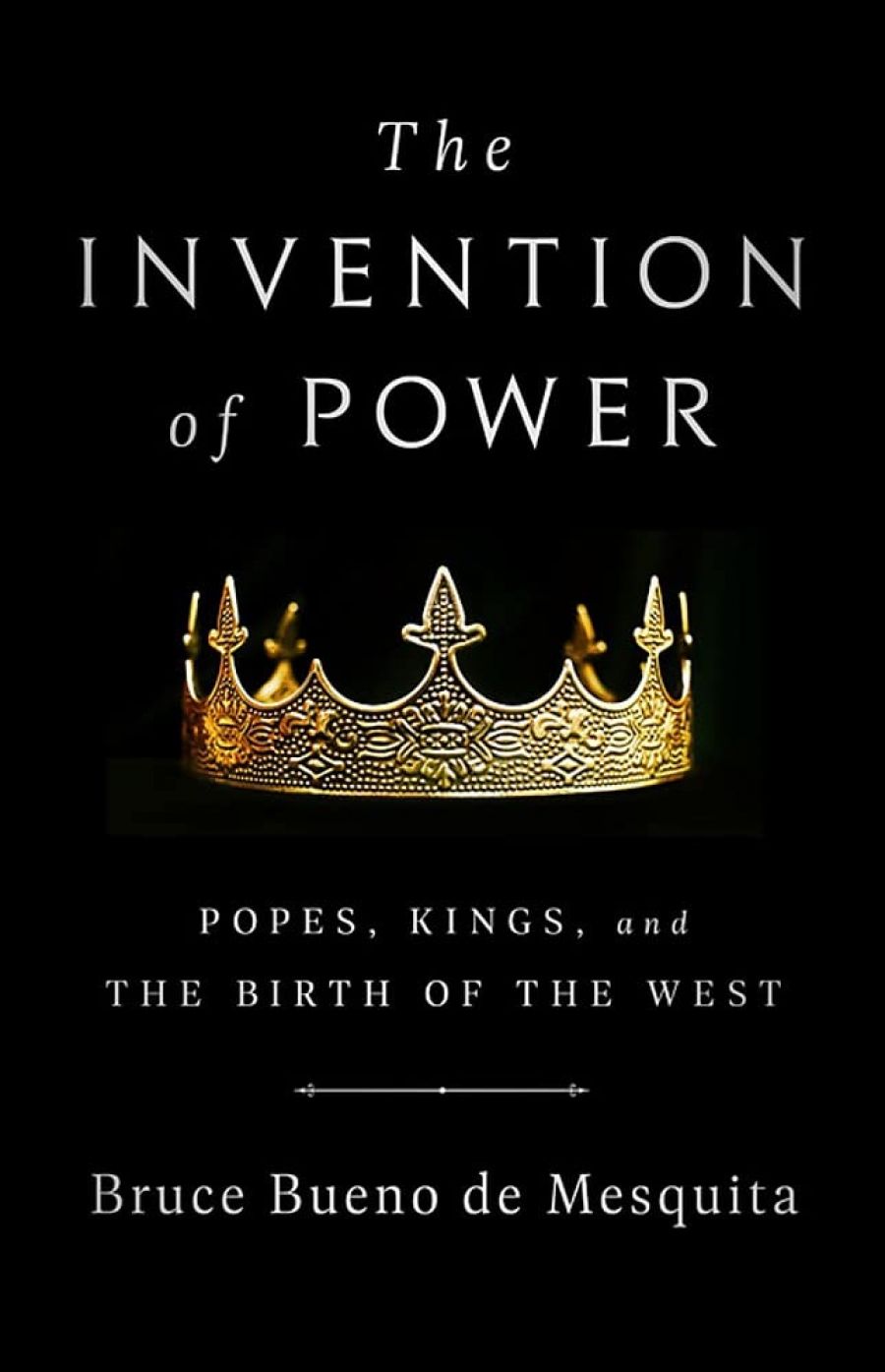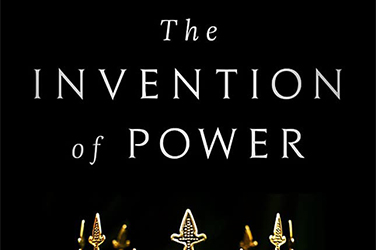
- Free Article: No
- Contents Category: History
- Review Article: Yes
- Article Title: 'The concordat game'
- Article Subtitle: Big data and the origins of the West
- Online Only: Yes
- Custom Highlight Text:
We live in an age that worships data. If Covid-19 has taught us nothing else, it is that arguments advanced via assertions of statistical significance are practically impervious to criticism. Naturally, quantitative-minded academics have become the high priests of this religion, and they now seem to think they are the authorities on everything. When they cynically use trendy tools to legitimise what are really very old preconceptions, it is as if the linguistic turn and those other movements that sought to ground scholarship in careful, close-read qualitative analysis of texts and contexts never happened. At least, that is the impression one gets from reading this somewhat surreal contribution to debate about the significance of the European Middle Ages from American political scientist Bruce Bueno de Mesquita.
- Featured Image (400px * 250px):

- Alt Tag (Featured Image): Miles Pattenden reviews 'The Invention of Power: Popes, kings, and the birth of the West' by Bruce Bueno de Mesquita
- Book 1 Title: The Invention of Power
- Book 1 Subtitle: Popes, kings, and the birth of the West
- Book 1 Biblio: Public Affairs, $42.99 hb, 345 pp
- Book 1 Readings Link: https://www.booktopia.com.au/the-invention-of-power-bruce-de-mesquita/book/9781541768758.html
The heart of de Mesquita’s study is a detailed analysis of what he calls ‘the concordat game’ – competition between pope and secular rulers over the appointment of bishops, as regulated by the 1107 and 1122 agreements. According to de Mesquita, the terms of the concordats incentivised popes to consent to royal candidates for bishoprics who were loyal to the secular rather than the ecclesiastical power. So long as an episcopal see remained vacant, the Crown pocketed its revenues, and this effectively forced the pope’s hand. Moreover, the richer the diocese, the stronger the incentives were on both parties – for the king to nominate a henchman and for the pope to acquiesce to him, even if through gritted teeth – because the financial stakes were higher. Thus, gradually, papal control over ecclesiastical institutions in France, Germany, and England was loosened and national churches, prototypes of those later to emerge in the German and English Reformations, consolidated. The self-confident charts that support these propositions include such exemplary propositions as one comparing the ‘calorific potential and secularism’ of dioceses and ‘economic expansion over fifty-year periods given prior diocesan secularism’. Neither the inherent unreliability nor the methodological problem presented by generating the data used to populate such charts is much discussed.
The most interesting question about this book is, perhaps, simply why de Mesquita, a distinguished practitioner in his field, wanted to write it. In some ways it ought to gratify medievalists that finding an explanation for ‘the birth of the West’ remains a holy grail even for present-minded members of the Academy. And yet, what confuses here is the scant attention that de Mesquita pays to other recent attempts to address his own chosen subject. His solution – that politics and institutions were key – takes us back not only to the occasionally quoted Charles Tilly (whose Coercion, Capital and the European States: 990–1992 is now thirty years old), but also to several generations of crusty, dyspeptic Whigs. It could also be said that rather too much of de Mesquita’s secondary reading also exhumes their defunct scribblings. Of more recent theories that stress the importance of economic factors, or of geography or climate, there is very little beyond a cursory bibliographic acknowledgment. At least this means the reader is spared Niall Ferguson’s Civilization (Penguin, 2011) and his six ‘killer apps’.
Part of the rationale for this oversight is surely that de Mesquita sees his contribution to debate as quite apart from that wider corpus: he grounds his departure of ‘the West’ from ‘the rest’ in a somewhat earlier era than Ferguson. Yet this book still commits the original sin inherent in much of that grand theory literature: it seeks a single key event or variable that explains Western exceptionalism without much self-awareness as to the essential futility of that exercise. De Mesquita’s choice of the medieval concordats as a starting point for Western modernity is novel in a certain sense, but this itself makes his failure to immerse himself in the rich and insightful research around his chosen theme by trained historians particularly disappointing. Happily enough, much of the best work in this field is currently in English. Benedict Wiedermann’s Papal Lordship and European Princes, 1000–1270 (OUP, 2022) is an exemplary and learned account of the context which drives much of de Mesquita’s inquiry. Other young scholars, including Benjamin Savill, a lecturer at Trinity College Dublin, and Daniel Armstrong, a postdoctoral fellow at St Andrews, are also making important advances on our understanding of the pre-concordat situation. For the post-1122 world, de Mesquita would have done well to read the writings of Barbara Bombi, now author of a major work on Anglo-papal relations in the fourteenth century (OUP, 2019). One might go on.
The choice of title, The Invention of Power, raises a further question: where might Foucault be in all this (he is certainly not in the bibliography)? Even more irritating than the book’s overblown rhetoric is its quasi-conspiratorial tone. ‘It turns out …’ becomes an oft-repeated phrase, as if Bueno de Mesquita wants to invite his reader to accompany him on a personal journey to discovery. Moreover, wider reading within the modern historiography of papal diplomacy and relations with secular powers could have helped him to avoid some of the unfortunate inaccuracies in the text. A casual statement that ‘by the time of the Thirty Years’ War, nepotism was close to eliminated in the papacy’ was certainly alarming to me; it would also likely have come as news to the many seventeenth-century Romans who denounced Urban VIII (r. 1623–44) as the greatest nepotist of them all. The second half of this sentence, ‘apparently returning the selection of the pope to the same religious considerations as had dominated that choice before the creation of the Papal States’ just cannot be taken seriously. Misreads such as these highlight the ongoing importance for Australia and other Anglophone democracies to maintain actual specialists in premodern history in our ‘sector-leading’ universities.

Comments powered by CComment